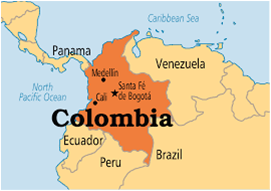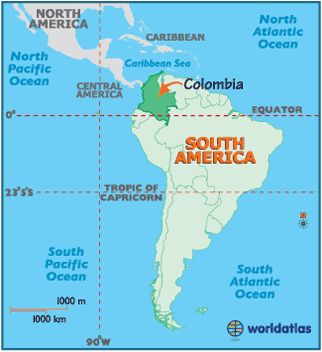Political developments in Columbia
What is the issue?
- The Columbian leftist militant group FARC had entered into a peace accord with the government of President Juan Manuel Santos in 2016.
- While further negotiations are already on a wobbly path, results of the recent parliamentary elections have complicated matters further.
What are the political developments in Columbia?


|
Who are the FARC?
|
The Revolutionary Armed Forces of Colombia (FARC) are Colombia's largest rebel group. They were founded in 1964 as the armed wing of the Communist Party and follow a Marxist-Leninist ideology. Their main founders were small farmers and land workers who had banded together to fight against the staggering levels of inequality in Colombia at the time. Inspired by the Cuban revolution in the 1950s, they demanded more rights and control over the land. The security forces estimate that there are between 6,000 and 7,000 active fighters within the ranks of the FARC. The rebels are organised in small tactical groups that in turn make up larger fighting units which are organised in regional ‘blocs’. They are controlled by the Secretariat, a group of less than a dozen top commanders who devise the overarching strategy of the FARC. The FARC's top leader is Rodrigo Londono Echeverri, better known by his alias Timochenko.
|
|
Colombian peace process?
|
§ Land reform: economic and social development of rural areas and provision of land to poor farmers § Political participation of rebels once a peace deal is reached § Illegal drugs trade (one of the main sources of funding for the Farc): all illicit drug production will be eliminated § Transitional justice: amnesty for combatants, excluding those who have committed the most serious crimes NOTE: 1-According to the agreement, the FARC Rebels would each be distributed 3 hectares of land, food, and water to help them adopt healthier living habits. 2-Additionally, 10 seats in Colombia’s Constitutional Congress would be guaranteed to the FARC in the upcoming elections as well as the creation of 16 temporary electoral districts in lands previously underrepresented by the government (Manuel Santos Calderón, 2016). 3-These changes would help to make political participation realistically attainable for those who had felt oppressed by a lack of voice in politics.
|
|
Nobel Peace Prize for Colombian President |
1-The Nobel Peace Prize for 2016 has been awarded to Colombian President Juan Manuel Santos for his efforts to end his country's 50-year civil war. Santos and FARC leader Timochenko signed the 297-page accord in front of world leaders and UN Secretary General Ban Ki-moon. 2- Santos is the first Latin American to receive the peace prize since indigenous rights campaigner Rigoberta Menchu of Guatemala won in 1992, and is the second Colombian after writer Gabriel Garcia Marquez, who won the literature prize in 1982.
|
|
The Setback |
But FARC will still get an assured representation in parliament as agreed in the disputed accord |
